
Lethem: Gateway to the Rupununi Savanna
Lethem, a charming town located in the Upper Takutu-Upper Essequibo region of Guyana, serves as a crucial link between Brazil and Guyana. It is a place where the lush greenery of the Amazon meets the vast expanse of the Rupununi Savanna, creating a unique landscape that is both captivating and inviting. Stepping into Lethem, you'll find a blend of indigenous culture and modern influences, making it a fascinating destination for any traveler. The town is a hub for adventure seekers and nature lovers. The Rupununi Savanna offers countless opportunities for exploration, from wildlife spotting on the open plains to discovering hidden waterfalls and ancient rock formations. Lethem is also the starting point for visits to the Kanuku Mountains, home to a rich diversity of flora and fauna. Whether you're trekking through dense forests or birdwatching by the rivers, the natural beauty of the area is bound to leave a lasting impression. In Lethem, the local culture is vibrant and welcoming. The annual Rupununi Rodeo, held every Easter, is a highlight that draws visitors from all around. This event showcases the skills of local cowboys and offers a glimpse into the traditional lifestyle of the region's inhabitants. The town's market is another must-visit, where you can find handmade crafts, fresh produce, and delicious local cuisine. From savoring a hearty pepperpot to enjoying the rhythmic sounds of indigenous music, Lethem provides an authentic taste of Guyanese culture in a serene, rural setting.
Local tips in Lethem
- Visit during the Rupununi Rodeo to experience the local culture and festivities.
- Bring insect repellent and sunscreen, as the climate can be hot and humid.
- Explore the local markets for authentic handmade crafts and local delicacies.
- Consider hiring a local guide for trekking and wildlife spotting to enhance your experience.
- Ensure you have proper travel documents if planning to cross the border into Brazil.
Lethem: Gateway to the Rupununi Savanna
Lethem, a charming town located in the Upper Takutu-Upper Essequibo region of Guyana, serves as a crucial link between Brazil and Guyana. It is a place where the lush greenery of the Amazon meets the vast expanse of the Rupununi Savanna, creating a unique landscape that is both captivating and inviting. Stepping into Lethem, you'll find a blend of indigenous culture and modern influences, making it a fascinating destination for any traveler. The town is a hub for adventure seekers and nature lovers. The Rupununi Savanna offers countless opportunities for exploration, from wildlife spotting on the open plains to discovering hidden waterfalls and ancient rock formations. Lethem is also the starting point for visits to the Kanuku Mountains, home to a rich diversity of flora and fauna. Whether you're trekking through dense forests or birdwatching by the rivers, the natural beauty of the area is bound to leave a lasting impression. In Lethem, the local culture is vibrant and welcoming. The annual Rupununi Rodeo, held every Easter, is a highlight that draws visitors from all around. This event showcases the skills of local cowboys and offers a glimpse into the traditional lifestyle of the region's inhabitants. The town's market is another must-visit, where you can find handmade crafts, fresh produce, and delicious local cuisine. From savoring a hearty pepperpot to enjoying the rhythmic sounds of indigenous music, Lethem provides an authentic taste of Guyanese culture in a serene, rural setting.
When is the best time to go to Lethem?
Iconic landmarks you can’t miss
Kaieteur Falls - Guyana
Discover the breathtaking beauty of Kaieteur Falls, one of the world's tallest waterfalls, nestled in the pristine rainforest of Guyana.
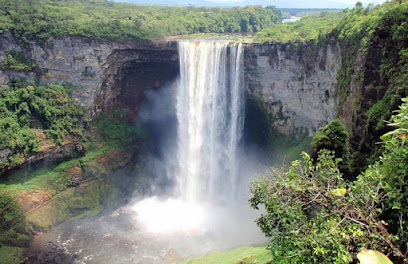
The 1763 Monument
Explore the 1763 Monument in Georgetown, a powerful symbol of resilience and cultural heritage, reflecting Guyana's rich history.
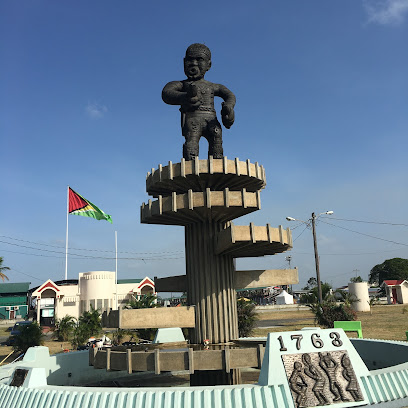
Takutu Hotel
Discover comfort and adventure at Takutu Hotel, your gateway to the breathtaking Rupununi region in Guyana.

I Love Guyana Sign
Discover the vibrant spirit of Georgetown at the iconic 'I Love Guyana' sign, a must-visit landmark celebrating the beauty and culture of this South American gem.
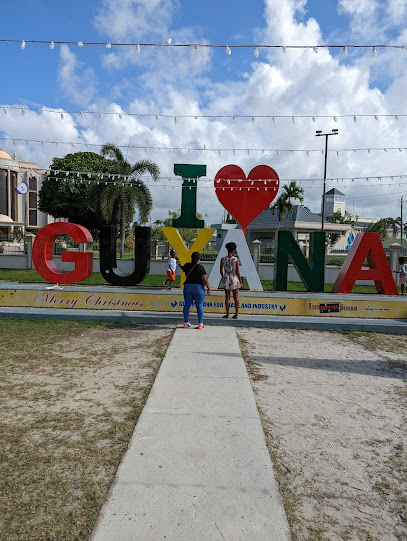
Rupununi Eco Hotel
Experience eco-friendly luxury at Rupununi Eco Hotel, your perfect base for exploring Lethem's natural beauty and vibrant culture.
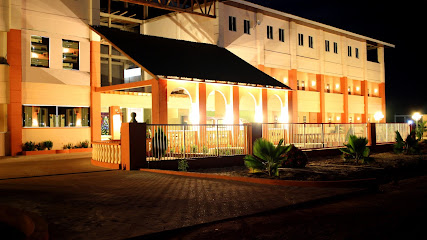
Umana Yana
Explore Umana Yana in Georgetown, a cultural center and monument celebrating Guyana's heritage and African liberation, offering insight into the nation's rich history.
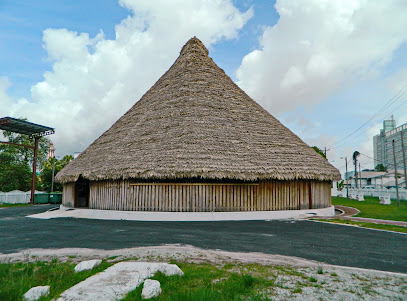
Savannah Inn
Discover the heart of Lethem at Savannah Inn, your cozy gateway to Guyana's stunning landscapes and vibrant culture.

ORI Hotel & Restaurant
Discover the comfort of ORI Hotel & Restaurant in Lethem, where local flavors and warm hospitality create unforgettable experiences.

Damon Monument
Explore the Damon Monument in Anna Regina, a cultural landmark that tells the story of Guyana's rich heritage and history.
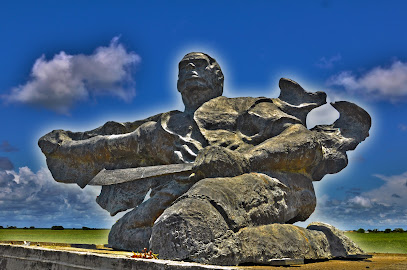
LETHEM RODEO GROUND
Discover the vibrant culture and thrilling rodeo events at Lethem Rodeo Ground, a sports complex that showcases Guyana's rich equestrian heritage.
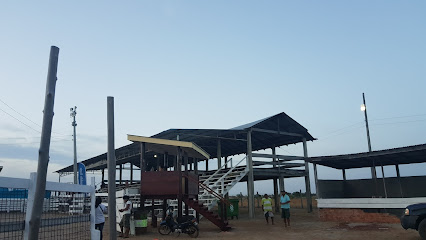
Waikin Ranch
Discover the serene beauty of Waikin Ranch in Lethem, Guyana, where adventure meets tranquility amidst breathtaking landscapes.

Kumu
Discover the natural beauty and rich cultural heritage of Kumu, Lethem's hidden gem, perfect for adventure seekers and cultural enthusiasts alike.
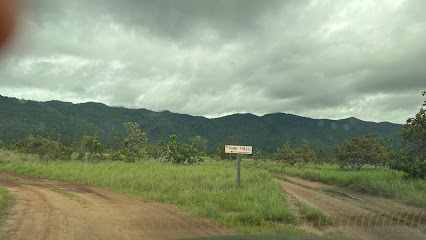
Iwokrama Forest
Experience the stunning biodiversity and rich cultural history of Iwokrama Forest, one of the last true rainforests on Earth.

Fort Kyk-Over-Al
Discover the historical charm and breathtaking views at Fort Kyk-Over-Al, a must-visit landmark in Guyana's rich colonial history.
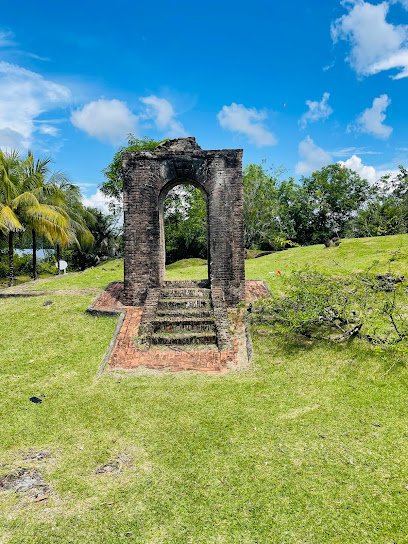
Non-Aligned Monument
Explore the Non-Aligned Monument in Georgetown, a tribute to peace and unity that enriches your understanding of Guyana’s historical narrative.
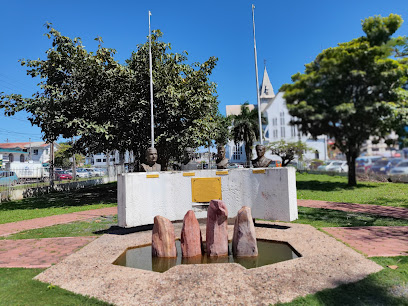
Unmissable attractions to see
Stabroek Market
Explore the vibrant Stabroek Market in Georgetown, a cultural treasure trove of local goods, spices, and unique artisan crafts.
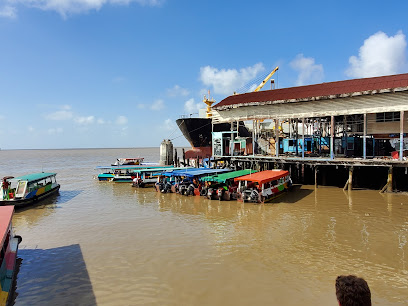
Kaieteur Falls - Guyana
Experience the unrivaled beauty of Kaieteur Falls, one of the tallest waterfalls in the world, surrounded by lush rainforests in Guyana's stunning national park.
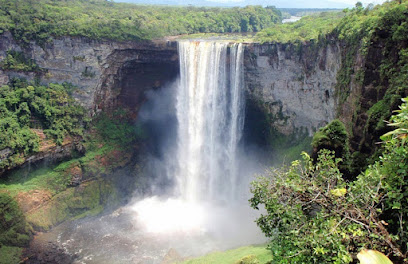
Guyana National Museum
Explore the Guyana National Museum: A gateway to the nation's rich cultural and natural heritage in the heart of Georgetown.
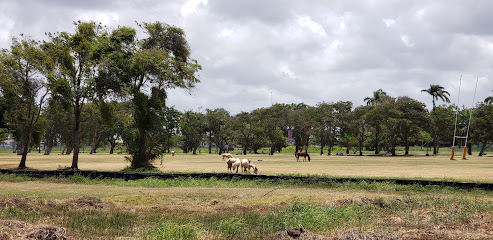
Promenade Gardens Guyana
Immerse yourself in the lush beauty of Promenade Gardens, a tranquil escape in Georgetown, Guyana, perfect for relaxation and exploration.
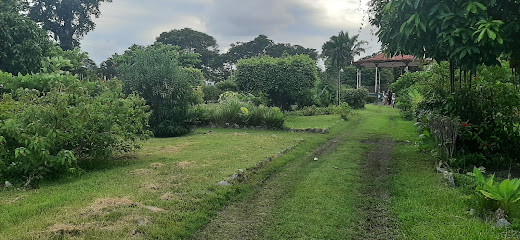
Guyana Zoo
Explore unique wildlife at Guyana Zoo, where conservation meets adventure in the heart of Georgetown.
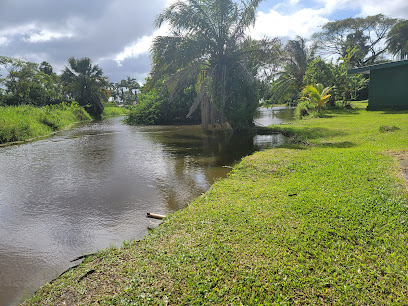
St George's Cathedral
Explore St. George's Cathedral in Georgetown, Guyana, a breathtaking wooden architectural masterpiece steeped in history and spirituality.
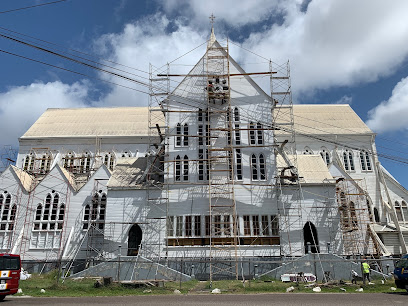
Iwokrama River Lodge
Experience the untamed beauty of Guyana at Iwokrama River Lodge, your perfect base for rainforest adventures and cultural encounters.
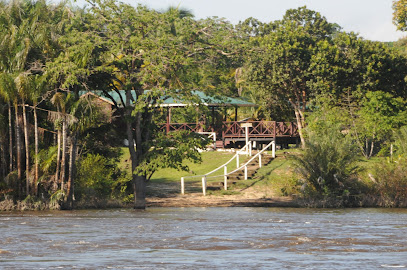
Bourda market
Explore Bourda Market in Georgetown, a vibrant marketplace showcasing local produce, crafts, and authentic Guyanese cuisine.
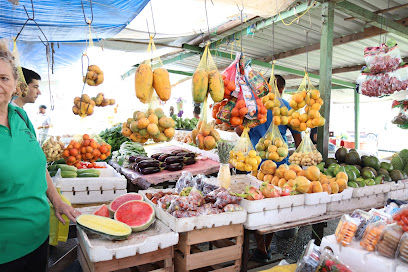
Orinduik Falls
Explore the breathtaking Orinduik Falls, a majestic waterfall in Guyana showcasing stunning cascades and serene natural beauty for an unforgettable adventure.
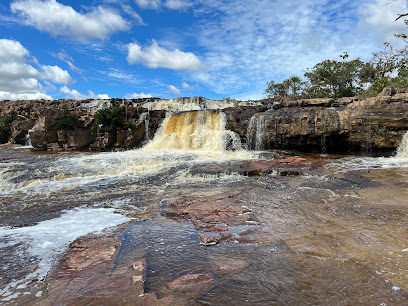
St. Andrews Kirk
Discover the tranquility and architectural beauty of St. Andrews Kirk, a historic church in Georgetown, Guyana, blending history with serene spiritual ambiance.
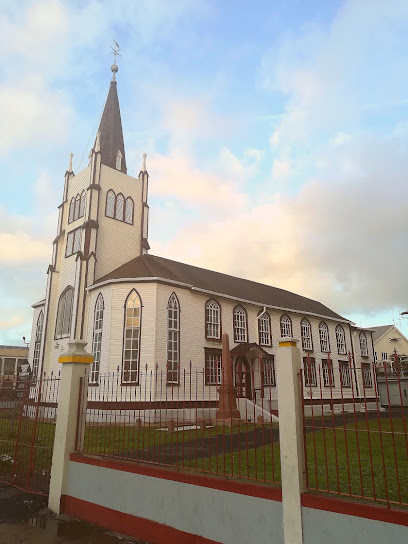
Kanuku Mountains
Embark on an unforgettable adventure in the Kanuku Mountains, a breathtaking paradise of diverse wildlife and stunning natural landscapes in Guyana.
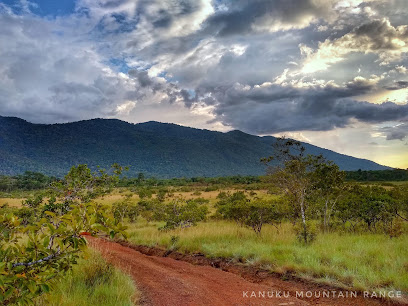
Iwokrama Canopy Walkway
Discover the heights of adventure at the Iwokrama Canopy Walkway, where nature's wonders meet breathtaking views in the heart of Guyana's rainforest.
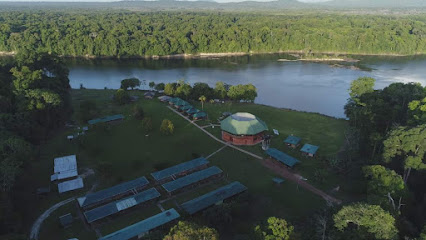
Iwokrama Forest
Explore Iwokrama Forest, a captivating nature preserve in Guyana, where diverse wildlife meets breathtaking landscapes for an unforgettable eco-adventure.

Kumu
Explore Kumu, Lethem - A Hidden Gem in Guyana's Natural Paradise, Perfect for Nature Lovers and Adventure Seekers.
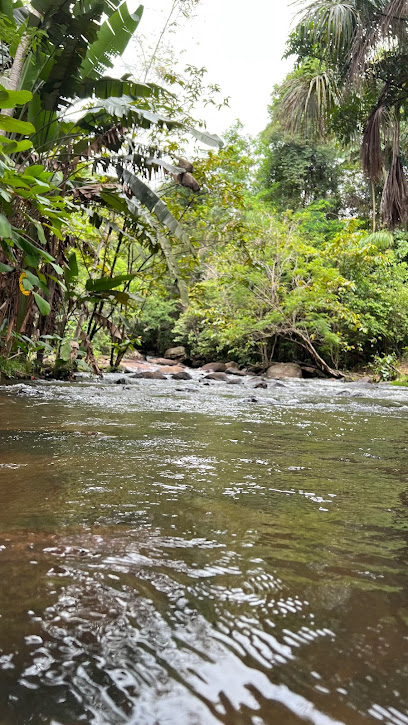
Wichabai Ranch and Guest Houses
Discover tranquility at Wichabai Ranch and Guest Houses, a unique lodge in South Rupununi, where nature and culture blend harmoniously.
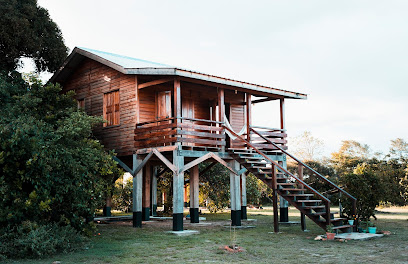
Essential places to dine
Takutu Hotel
Discover comfort and local charm at Takutu Hotel in Lethem, your gateway to exploring Guyana's stunning Rupununi region.

Rupununi Eco Hotel
Discover tranquility at Rupununi Eco Hotel - an eco-friendly retreat nestled in Lethem's stunning landscapes.
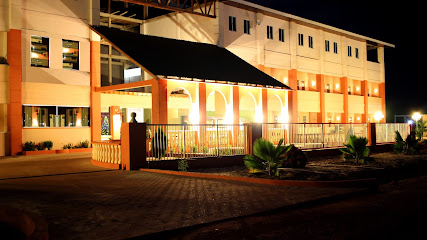
Ravi's Restaurant & Bar
Experience authentic Indian cuisine in Lethem at Ravi's Restaurant & Bar – where every dish tells a story.
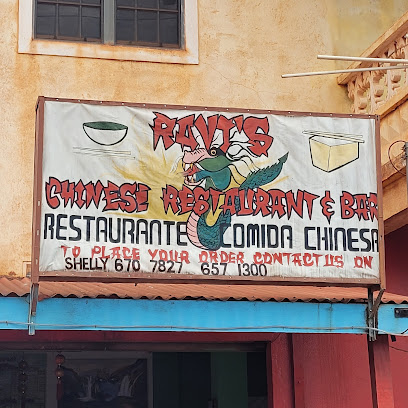
Wayka’s Churrascaria
Discover authentic Brazilian barbecue at Wayka’s Churrascaria in Lethem - where flavor meets vibrant culture.
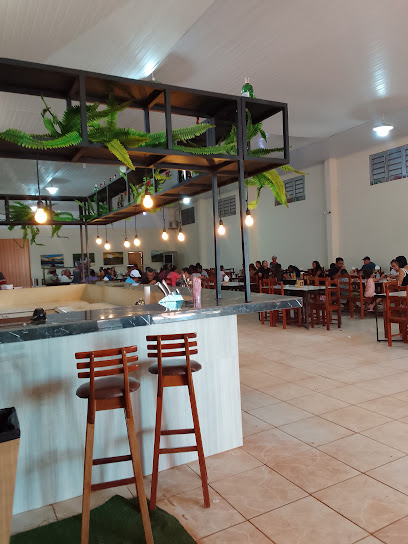
Hotel Amazon
Discover comfort and excitement at Hotel Amazon in Lethem—your gateway to exploring Guyana's breathtaking landscapes and vibrant culture.
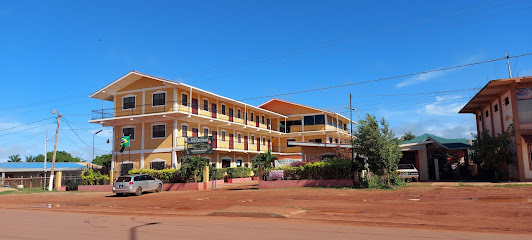
Savannah Inn
Discover comfort at Savannah Inn in Lethem - your perfect stay for exploring Guyana's natural beauty and vibrant culture.

Wayka's Snackette
Discover the rich flavors of Guyanese cuisine at Wayka's Snackette in Lethem - a must-visit dining experience!
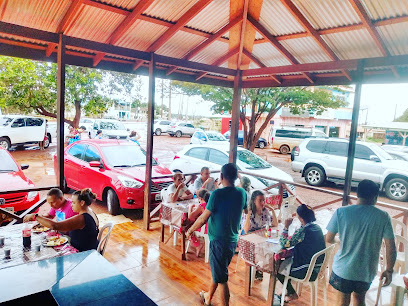
ORI Hotel & Restaurant
Discover comfort and local flavors at ORI Hotel & Restaurant in Lethem – your ideal retreat for relaxation and adventure.

Amazonas Bistrô
Experience authentic Brazilian flavors in Lethem at Amazonas Bistrô – where every dish tells a story.
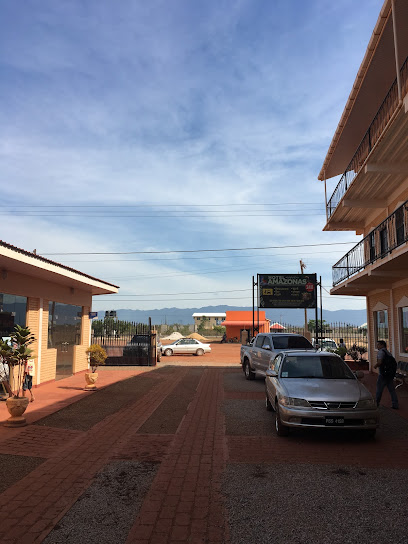
Chou Chinese Restaurant
Experience authentic Chinese flavors at Chou Chinese Restaurant in Lethem - where every dish tells a story.
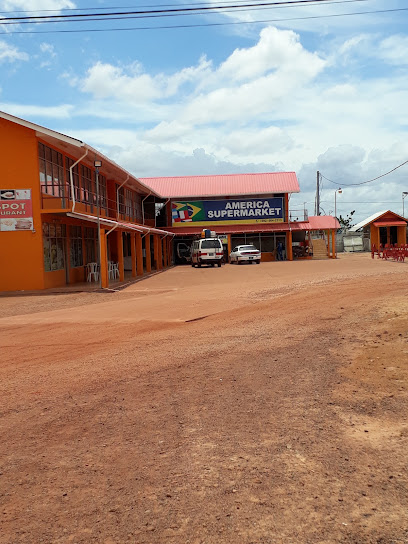
MOUNTAINSTREAM LODGE
Discover tranquility at Mountainstream Lodge – your gateway to nature's beauty in Lethem.
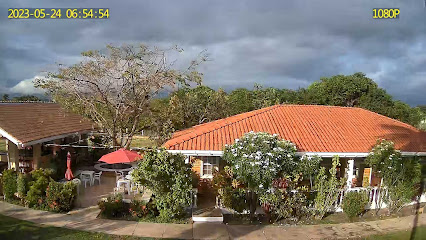
The Big Yard Rental Rooms
Discover comfort and convenience at The Big Yard Rental Rooms, your perfect lodging choice in Lethem's vibrant heart.
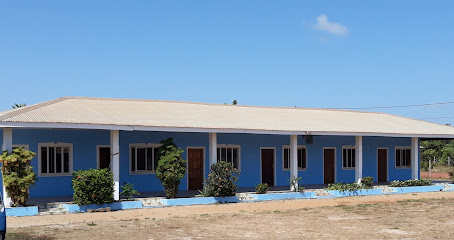
Betty's Creole Corner
Experience authentic Guyanese cuisine at Betty's Creole Corner in Lethem – where every dish tells a story.
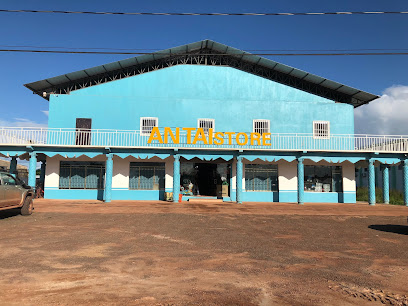
Restaurante e Lanchonete Delícia
Experience authentic Guyanese cuisine at Restaurante e Lanchonete Delícia in Lethem - where every meal tells a story.
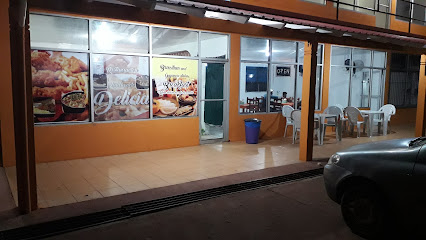
L'Cafeteria D'Airport
Discover the cozy ambiance and delightful flavors at L'Cafeteria D'Airport in Lethem - your perfect coffee stop!
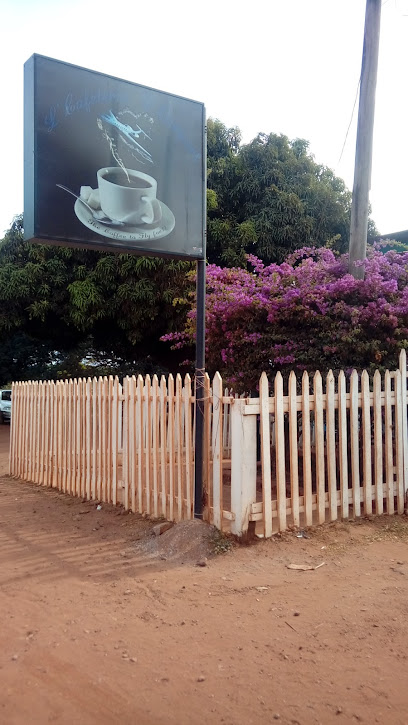
Markets, malls and hidden boutiques
Hua Long - Variety Store
Explore Hua Long in Lethem for a unique shopping experience showcasing local fashion and vibrant culture.
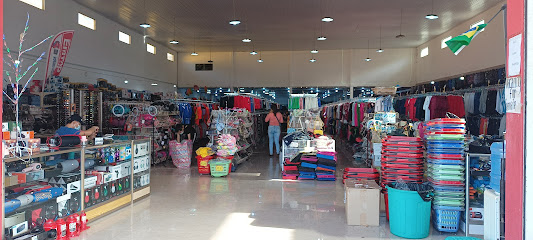
Linus Shopping Plaza
Explore Linus Shopping Plaza, Lethem's vibrant shopping destination offering unique local crafts, delicious dining, and a taste of Guyanese culture.
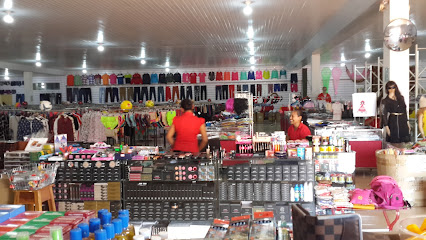
Bliss
Explore Bliss in Lethem: A treasure trove of unique gifts and local crafts that encapsulate the spirit of Guyana.
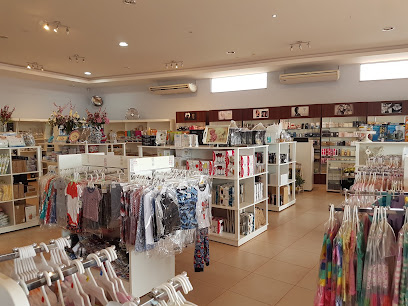
American Store
Discover unique fashion and local craftsmanship at the American Store in Lethem, where style meets cultural richness in every piece.
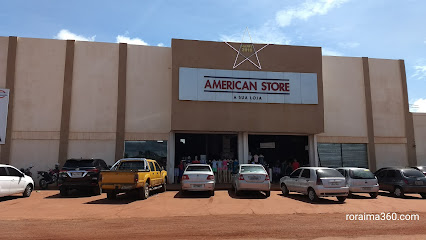
SAVANNAH INN SUPERMARKET
Experience the local culture and flavors at Savannah Inn Supermarket, the ultimate shopping destination in Lethem, Guyana.
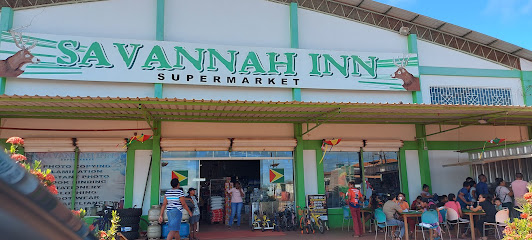
Loja Vermelha
Discover Loja Vermelha in Lethem, where vibrant clothing reflects the unique culture of Guyana, perfect for souvenirs and local fashion.
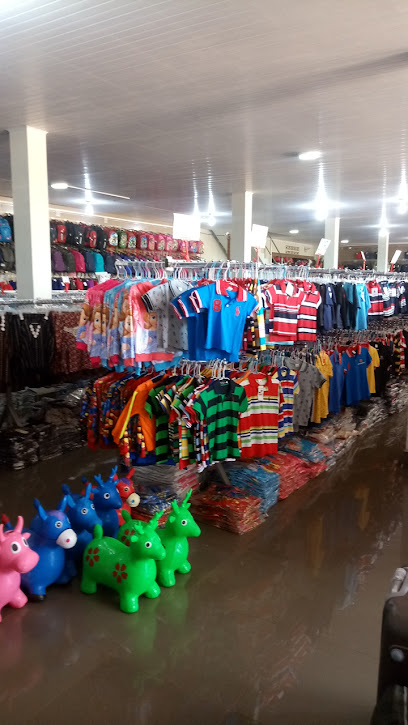
ATLANTIC VARIETY STORE
Discover the best of Lethem at Atlantic Variety Store - your one-stop destination for local crafts, essentials, and unique finds.
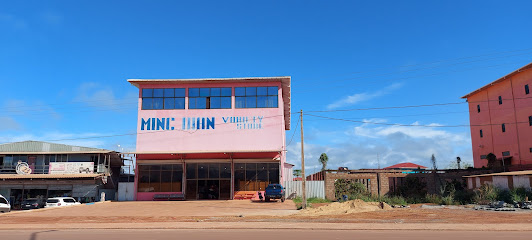
ABC VARIETY STORE
Shop local and discover unique treasures at ABC Variety Store, your go-to department store in Lethem for a taste of the region's culture.
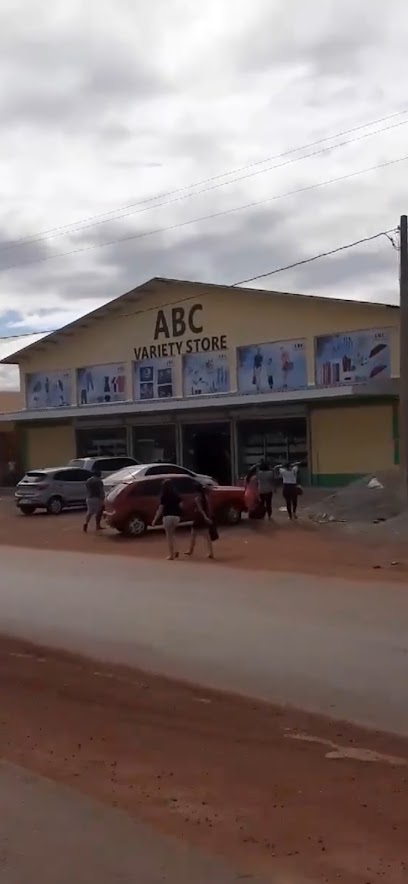
Levi's Shopping Center
Explore the vibrant Levi's Shopping Center in Lethem for diverse clothing options, local designs, and a lively shopping experience that captures the essence of fashion.
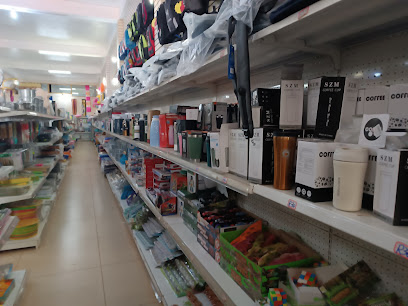
SHOPPING 25
Explore Shopping 25 in Lethem for an authentic shopping experience filled with unique local goods and vibrant cultural offerings.
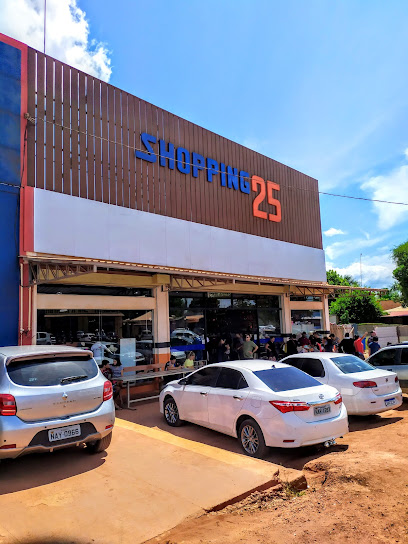
CARIBE SHOPPING
Discover the vibrant Caribe Shopping in Lethem, where local culture meets a diverse shopping experience in a modern setting.
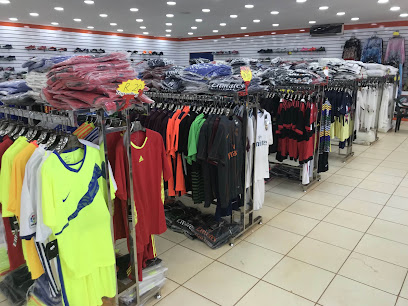
Asia Trading
Explore Lethem's vibrant clothing scene at Asia Trading, where local culture and unique styles meet for an unforgettable shopping experience.
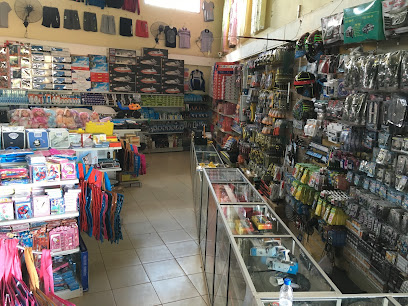
LIT - LINCOLN INTERNATIONAL TRADING
Explore the vibrant selection of local goods and unique products at LIT - Lincoln International Trading in Lethem, Guyana.
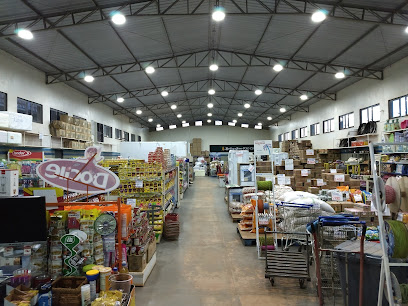
Wayka's Beauty
Explore Wayka's Beauty in Lethem for a captivating selection of fragrances that embody the spirit of the region and beyond.
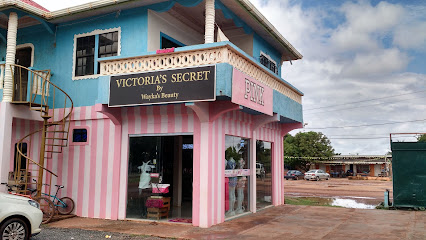
Lethem Hobby Shop
Explore Lethem Hobby Shop for unique crafts, souvenirs, and a taste of local culture in the heart of Lethem, Guyana.
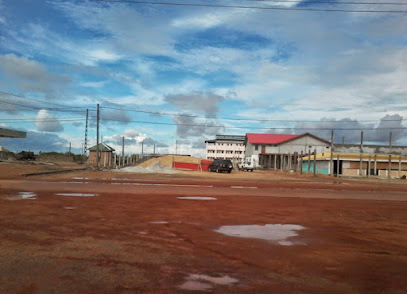
Essential bars & hidden hideouts
Takutu Hotel
Discover the charm and comfort of Takutu Hotel in Lethem, your perfect base for exploring the vibrant Rupununi region of Guyana.

Ravi's Restaurant & Bar
Experience the vibrant flavors of India at Ravi's Restaurant & Bar in Lethem, where authentic cuisine meets warm hospitality.
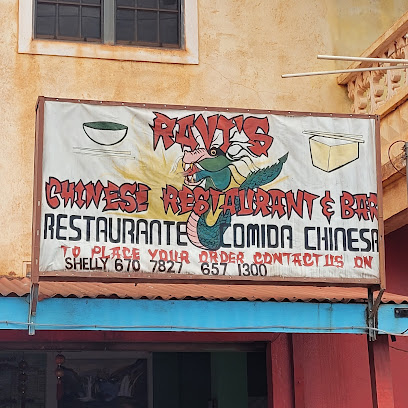
Toucanna Hotel Adventure Guianas Hotel and Courtyard
Discover the perfect blend of comfort and adventure at Toucanna Hotel Adventure Guianas in the heart of Rupununi.
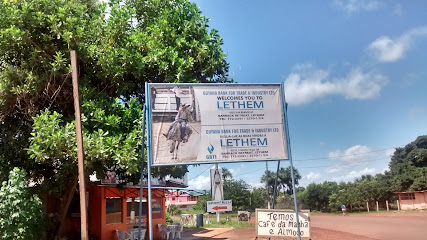
Wayka’s Churrascaria
Discover the flavors of Guyana at Wayka’s Churrascaria, where grilled meats and local dishes come together in a vibrant dining experience.
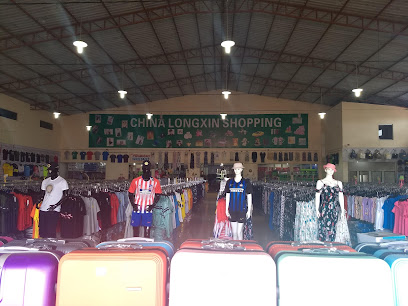
Hotel Amazon
Discover the heart of Guyana at Hotel Amazon, where comfort meets adventure in Lethem's vibrant landscapes.
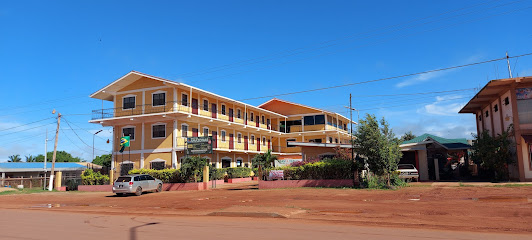
The Vintage Bar And Lounge
Experience Georgetown's nightlife at The Vintage Bar And Lounge, where stylish cocktails and live music create the perfect evening atmosphere.
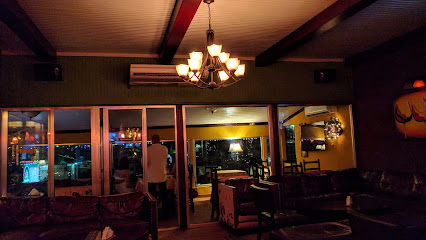
Savannah Inn
Discover comfort and local charm at Savannah Inn, your perfect base for exploring Lethem's vibrant culture and stunning landscapes.

ORI Hotel & Restaurant
Discover Lethem's charm at ORI Hotel & Restaurant, a cozy retreat offering comfortable lodging and delicious local cuisine in the heart of the region.

Amazonas Bistrô
Experience the authentic flavors of Brazil at Amazonas Bistrô in Lethem, where every meal is a celebration of local culinary traditions.
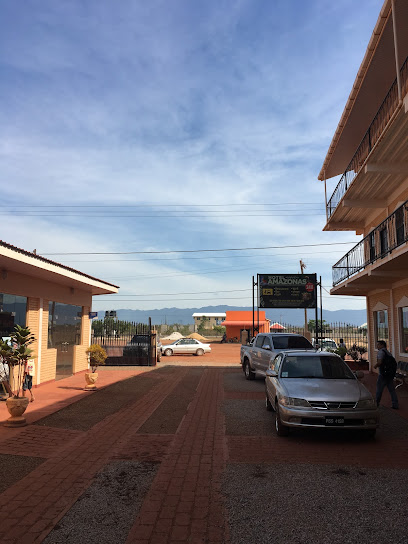
Route 626 Bar & Lounge
Discover the vibrant nightlife of East Coast Demerara at Route 626 Bar & Lounge - where local culture meets refreshing drinks.
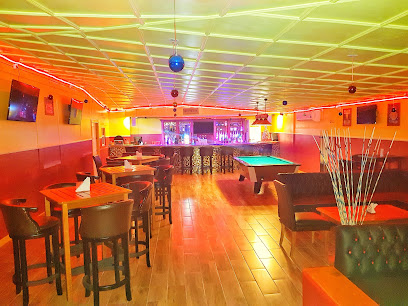
Lethem
Explore Lethem, the vibrant hub of Guyana offering rich culture, bustling markets, and stunning landscapes waiting to be uncovered.
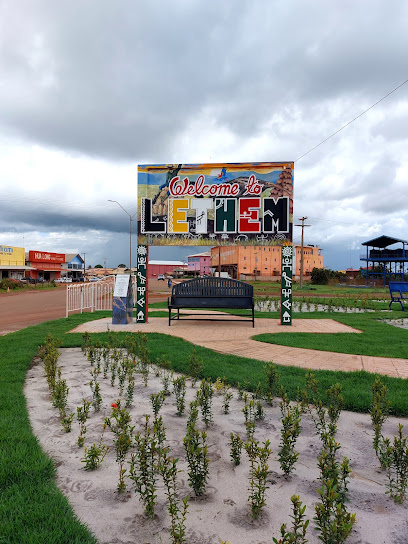
Cocktails hotspot bar and grill
Experience the lively atmosphere and exquisite flavors at Cocktails Hotspot Bar and Grill in Georgetown, where every meal is a celebration.
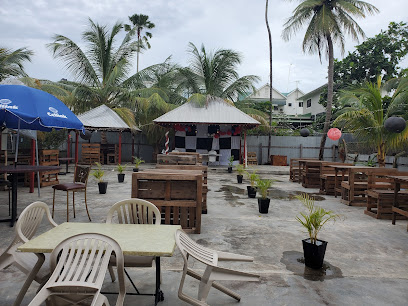
MOUNTAINSTREAM LODGE
Experience the tranquility of nature at Mountainstream Lodge, where comfort meets adventure in the heart of Lethem, Guyana.
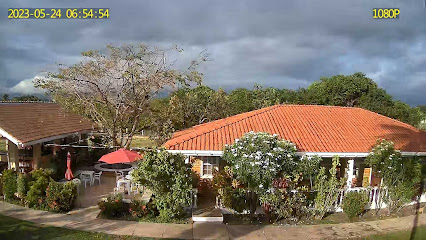
LUX BAR & LOUNGE
Discover the vibrant nightlife of Rumveldt at Lux Bar & Lounge, your stylish retreat for cocktails and local drinks.
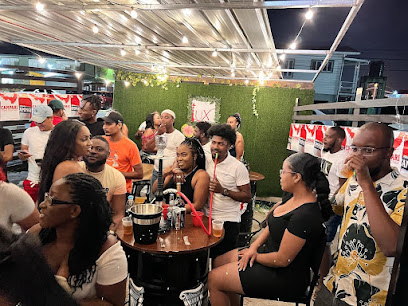
Local Phrases
-
- HelloWa gwaan
[wah gwaan] - GoodbyeStay bless
[stay bless] - YesYeah, man
[yeah, man] - NoNo sah
[no sah] - Please/You're welcomeAh beg yuh
[ah beg yuh] - Thank youTank yuh
[tank yuh] - Excuse me/SorrySarry
[sarry] - How are you?How yuh deh?
[how yuh deh] - Fine. And you?Mi cool. An yuh?
[mee cool. an yuh] - Do you speak English?Yuh speak English?
[yuh speak English] - I don't understandMi nuh ondastan
[mee nuh on-dah-stan]
- HelloWa gwaan
-
- I'd like to see the menu, pleaseMi wah see di menu, please
[mee wah see dee menu, please] - I don't eat meatMi nah eat meat
[mee nah eat meat] - Cheers!Cheers!
[Cheers!] - I would like to pay, pleaseMi wah pay, please
[mee wah pay, please]
- I'd like to see the menu, pleaseMi wah see di menu, please
-
- Help!Help!
[Help!] - Go away!Gwaan weh!
[gwaan way] - Call the Police!Call di Police!
[call dee Police] - Call a doctor!Call a dokta!
[call a dok-ta] - I'm lostMi lost
[mee lost] - I'm illMi sick
[mee sick]
- Help!Help!
-
- I'd like to buy...Mi wah buy...
[mee wah buy...] - I'm just lookingMi jus a look
[mee jus uh look] - How much is it?A suh much it deh?
[ah soo much it deh] - That's too expensiveDat too much
[dat too much] - Can you lower the price?Yuh can drop di price?
[yuh can drop dee price]
- I'd like to buy...Mi wah buy...
-
- What time is it?A wah time it deh?
[ah wah time it deh] - It's one o'clockA one o'clock
[ah one o'clock] - Half past (10)Haaf pass (10)
[haaf pass (10)] - MorningMahnin
[mahn-in] - AfternoonAftanoon
[af-ta-noon] - EveningEvenin
[even-in] - YesterdayYestadeh
[yes-tuh-deh] - TodayToday
[today] - TomorrowTomorrow
[tomorrow] - 1One
[wun] - 2Two
[too] - 3Tree
[tree] - 4Four
[foh] - 5Five
[fahyv] - 6Six
[siks] - 7Seven
[seh-vun] - 8Eight
[eyt] - 9Nine
[nahn] - 10Ten
[ten]
- What time is it?A wah time it deh?
-
- Where's a/the...?Weh di...deh?
[weh dee...deh] - What's the address?Wa deh di address?
[wah deh dee address] - Can you show me (on the map)?Yuh can show mi (pan di map)?
[yuh can show mee (pan dee map)] - When's the next (bus)?When di nex (bus)?
[when dee nex (bus)] - A ticket (to ....)A tikit (to ....)
[ah tik-it (to ....)]
- Where's a/the...?Weh di...deh?
History of Lethem
-
Lethem is located in the Upper Takutu-Upper Essequibo region, an area historically inhabited by the indigenous Macushi people. The Macushi, known for their deep connection to the land, have lived in the region for centuries, practicing subsistence agriculture, hunting, and fishing. Their rich cultural traditions, including storytelling, crafts, and rituals, continue to influence the area.
-
Throughout the 18th and 19th centuries, the region saw sporadic contact with European settlers, primarily the Dutch and later the British. These encounters often led to conflicts and displacement of indigenous communities. The region remained relatively isolated due to its remote location and challenging terrain, preserving much of its natural and cultural heritage.
-
One of the most significant events in the history of Lethem was the Rupununi Uprising of 1969. The rebellion was led by ranchers and indigenous groups dissatisfied with the central government. Although the rebellion was swiftly quelled, it brought international attention to the region and highlighted the socio-political tensions in Guyana's hinterlands.
-
In the latter half of the 20th century, Lethem began to develop as a key administrative and commercial hub for the Rupununi region. The construction of the Lethem-Linden road in the 1970s significantly improved access to the area, fostering economic growth and increased interaction with other parts of Guyana and neighboring Brazil.
-
Today, Lethem is a vibrant melting pot of cultures, where indigenous heritage coexists with influences from Afro-Guyanese, Indo-Guyanese, and Brazilian communities. The annual Rupununi Rodeo, held every Easter weekend, is a celebrated event that showcases the region's cowboy culture, attracting visitors from across Guyana and beyond.
Lethem Essentials
-
Lethem is located in the Upper Takutu-Upper Essequibo region of Guyana, near the border with Brazil. The most common way to reach Lethem is by air. Regular flights operate from Georgetown's Eugene F. Correia International Airport to Lethem's Airport, with a flight duration of approximately 1.5 hours. Alternatively, you can travel by road from Georgetown, which is about 430 kilometers away. The journey by road can take around 10-12 hours, depending on road conditions, and involves crossing the Essequibo River via a ferry.
-
Lethem is a small town, and many attractions are within walking distance. For longer trips, local minibuses and taxis are available. Taxis are relatively inexpensive and can be hired for short trips around town or longer journeys to nearby attractions. Renting a 4x4 vehicle can be a convenient option if you plan to explore the surrounding areas and neighboring regions.
-
The official currency in Guyana is the Guyanese Dollar (GYD). Credit cards are accepted in some hotels and larger stores, but it is advisable to carry cash, especially when visiting smaller establishments and rural areas. ATMs are available in Lethem, but it is wise to withdraw sufficient cash before traveling, as ATM networks can sometimes be unreliable.
-
Lethem is generally a safe destination for tourists. However, it is advisable to take standard precautions. Avoid walking alone at night in unfamiliar areas and keep an eye on your belongings in crowded places. Petty theft can occur, so always secure your personal items. There are no specific high-crime areas targeting tourists in Lethem, but it is always best to stay vigilant and aware of your surroundings.
-
In case of an emergency, dial 911 for immediate assistance. Lethem has a local police station and a hospital that can handle medical emergencies. It is highly recommended to have travel insurance that covers medical emergencies. For minor health issues, there are pharmacies in the town where you can purchase over-the-counter medications.
-
Fashion: Do dress modestly, especially when visiting religious or indigenous sites. Avoid overly revealing clothing. Religion: Do respect local customs and traditions. Some areas may be culturally sensitive, so always ask for permission before taking photographs. Public Transport: Do be respectful to drivers and fellow passengers. Don't eat or drink on public transport. Greetings: Do greet people with a friendly 'Good Morning' or 'Good Afternoon.' A handshake is a common form of greeting. Eating & Drinking: Do try local dishes and accept food offerings graciously. Don't refuse hospitality, as it is considered impolite.
-
To experience Lethem like a local, visit the local markets where you can buy fresh produce and traditional Guyanese goods. Engage with locals, as they are often friendly and willing to share stories about the area's history and culture. Don't miss visiting the Takutu River Bridge, which connects Lethem to Bonfim in Brazil. For a unique experience, explore the surrounding savannahs and indigenous villages, where you can learn about traditional practices and enjoy stunning natural landscapes.
Nearby Cities to Lethem
-
Things To Do in Kwakwani
-
Things To Do in Kamarang
-
Things To Do in Ituni
-
Things To Do in Linden
-
Things To Do in Bartica
-
Things To Do in Skeldon
-
Things To Do in New Amsterdam
-
Things To Do in Anna Regina
-
Things To Do in Brokopondo
-
Things To Do in Lelydorp
-
Things To Do in Paramaribo
-
Things To Do in Mariënburg
-
Things To Do in Moengo
-
Things To Do in Albina
-
Things To Do in Point Fortin




